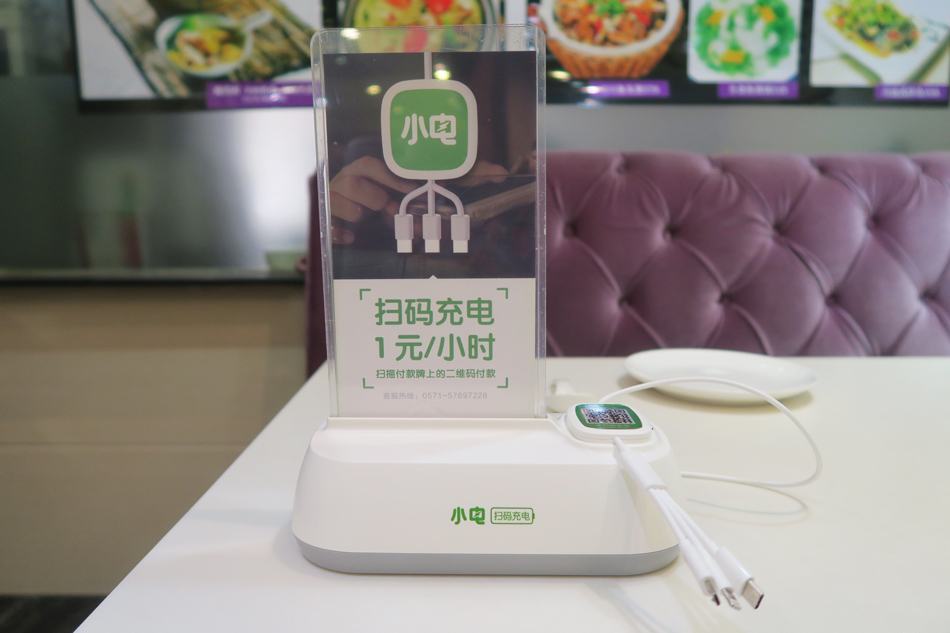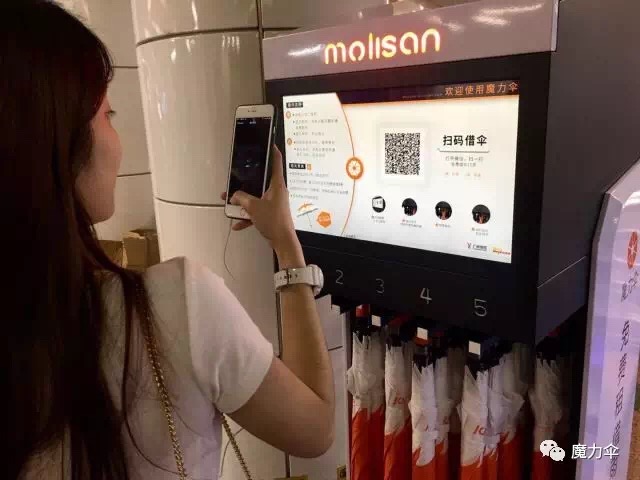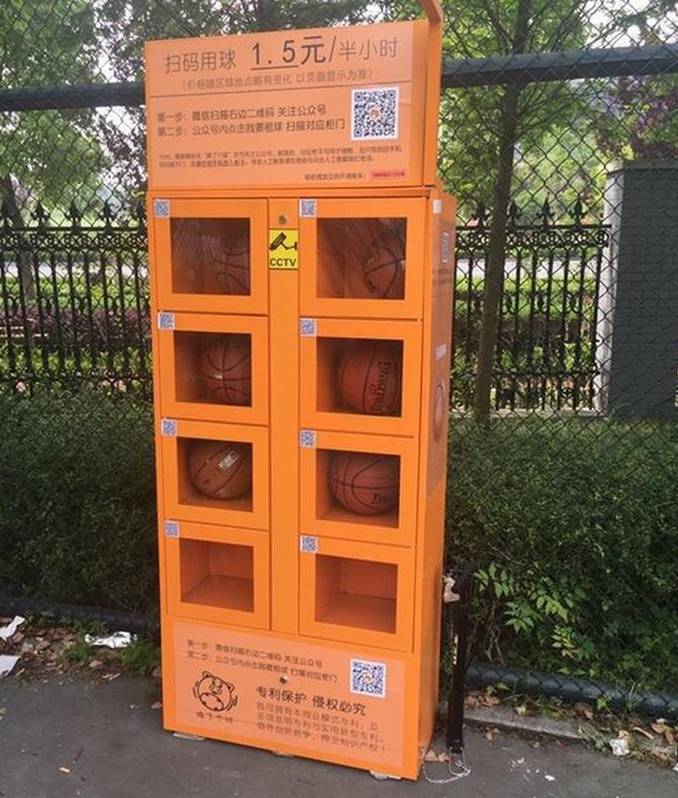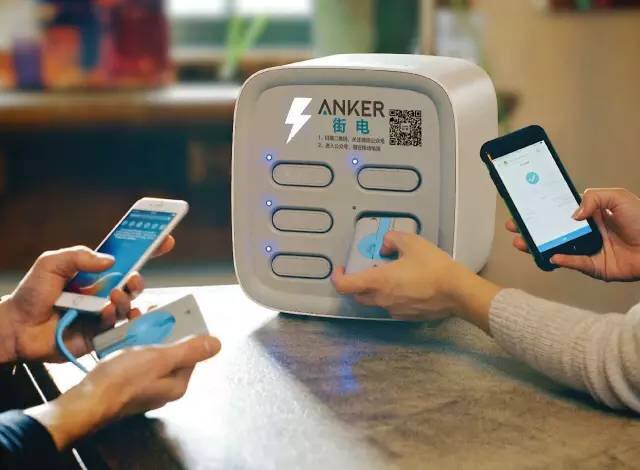
Because how will you text people during dinner if your phone dies? Photo credit: Tech in Asia.
China’s red-hot bike-sharing industry is drawing hundreds of millions of dollars out of investor coffers. Now, a new kind of “sharing” business seems to be following suit: portable phone charger sharing.
The idea is simple: rent out battery packs at places like restaurants, hotels, and karaoke bars and charge people by the hour. And because this is China, payments and rentals happen via QR code. The whole premise rests on the idea that people are so smartphone-obsessed, a full charge isn’t enough to last the whole day.
It’s part of a growing trend in the country where anything can be rented as long as it has a QR code. Like umbrellas:

Umbrellas for rent in the subway. Photo credit: Molisan.
Or basketballs, like at this high school:

Only 22 cents per half hour! Photo credit: Zhunzhe Lanqiu ‘Bootcamp’ WeChat account.
And there are now several startups renting out battery packs.

Photo credit: Ankerbox.
Full power
Today, one such phone charger startup, Xiaodian, announced a US$50 million series B round led by Sequoia China Capital and Banyan Capital, with Tencent as a participating investor. The Beijing-based startup got US$14.5 million series A in April.
Not bad for a startup that charges cellphones for less than US$1 an hour.
Through its standalone app, as well as WeChat and Alipay accounts, people can find the startup’s nearby charging stations. After scanning a QR code, users can start charging their phones. Payment is processed through WeChat Pay or Alipay, the two leading mobile payment systems in China. No deposit required.
So far, the company has partnered with over 10,000 shops to offer its battery rental services across Shanghai, Beijing, Guangzhou, and other Chinese cities. The latest round of funding will go towards expanding its operations into new cities.
Tech in Asia has reached out to Xiaodian and has not yet heard back.
Ankerbox, based in Shenzhen, is also setting up QR-based charging stations all over China. It too has raised millions of dollars of funding and is backed by IDG Capital. Last week, online beauty products retailer Jumei bought a controlling stake in it for US$43.5 million.
It’s not clear how these startups will survive in the long term, given how cheaply rentals are priced and how easy it is for new rivals to do the exact same thing. Though user data might be a valuable asset, such as the transportation data generated by ride-hailing unicorn Didi Chuxing, it’s not a guaranteed way to monetize. Still, for now, backed by investor capital, these object-sharing startups are showing how convenient it can be to use something without owning it.
Converted from Chinese yuan. Rate: US$1 = RMB 6.90
This post After bike-sharing, this looks like China’s next startup craze appeared first on Tech in Asia.
from Tech in Asia https://www.techinasia.com/xiaodian-series-b
via IFTTT
No comments:
Post a Comment